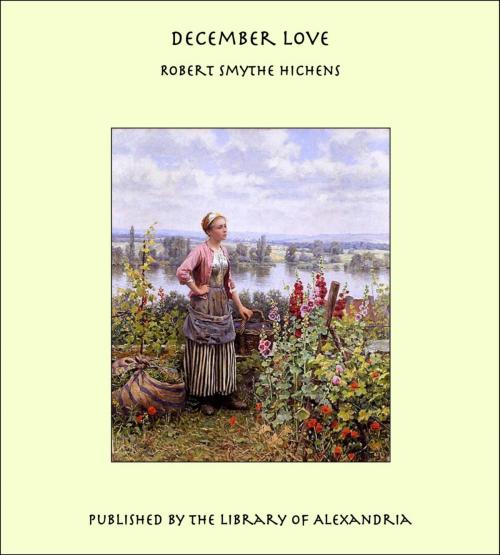| Author: | Robert Smythe Hichens | ISBN: | 9781613104989 |
| Publisher: | Library of Alexandria | Publication: | March 8, 2015 |
| Imprint: | Language: | English |
| Author: | Robert Smythe Hichens |
| ISBN: | 9781613104989 |
| Publisher: | Library of Alexandria |
| Publication: | March 8, 2015 |
| Imprint: | |
| Language: | English |
Alick Craven, who was something in the Foreign Office, had been living in London, except for an interval of military service during the war, for several years, and had plenty of interesting friends and acquaintances, when one autumn day, in a club, Francis Braybrooke, who knew everybody, sat down beside him and began, as his way was, talking of people. Braybrooke talked well and was an exceedingly agreeable man, but he seldom discussed ideas. His main interest lay in the doings of the human race, the "human animal," to use a favorite phrase of his, in what the human race was "up to." People were his delight. He could not live away from the centre of their activities. He was never tired of meeting new faces, and would go to endless trouble to bring an interesting personality within the circle of his acquaintance. Craven's comparative indifference about society, his laziness in social matters, was a perpetual cause of surprise to Braybrooke, who nevertheless was always ready to do Craven a good turn, whether he wanted it done to him or not. Indeed, Craven was indebted to his kind old friend for various introductions which had led to pleasant times, and for these he was quite grateful. Braybrooke was much older than most people, though he seldom looked it, and decades older than Craven, and he had a genial way of taking those younger than himself in charge, always with a view to their social advancement. He was a very ancient hand at the social game; he loved to play it; and he wanted as many as possible to join in, provided, of course, that they were "suitable" for such a purpose. Perhaps he slightly resembled "the world's governess," as a witty woman had once called him. But he was really a capital fellow and a mine of worldly wisdom. On the occasion in question, after chatting for about an hour, he happened to mention Lady Sellingworth—"Adela Sellingworth," as he called her. Craven did not know her, and said so in the simplest way. "I don't know Lady Sellingworth
Alick Craven, who was something in the Foreign Office, had been living in London, except for an interval of military service during the war, for several years, and had plenty of interesting friends and acquaintances, when one autumn day, in a club, Francis Braybrooke, who knew everybody, sat down beside him and began, as his way was, talking of people. Braybrooke talked well and was an exceedingly agreeable man, but he seldom discussed ideas. His main interest lay in the doings of the human race, the "human animal," to use a favorite phrase of his, in what the human race was "up to." People were his delight. He could not live away from the centre of their activities. He was never tired of meeting new faces, and would go to endless trouble to bring an interesting personality within the circle of his acquaintance. Craven's comparative indifference about society, his laziness in social matters, was a perpetual cause of surprise to Braybrooke, who nevertheless was always ready to do Craven a good turn, whether he wanted it done to him or not. Indeed, Craven was indebted to his kind old friend for various introductions which had led to pleasant times, and for these he was quite grateful. Braybrooke was much older than most people, though he seldom looked it, and decades older than Craven, and he had a genial way of taking those younger than himself in charge, always with a view to their social advancement. He was a very ancient hand at the social game; he loved to play it; and he wanted as many as possible to join in, provided, of course, that they were "suitable" for such a purpose. Perhaps he slightly resembled "the world's governess," as a witty woman had once called him. But he was really a capital fellow and a mine of worldly wisdom. On the occasion in question, after chatting for about an hour, he happened to mention Lady Sellingworth—"Adela Sellingworth," as he called her. Craven did not know her, and said so in the simplest way. "I don't know Lady Sellingworth















